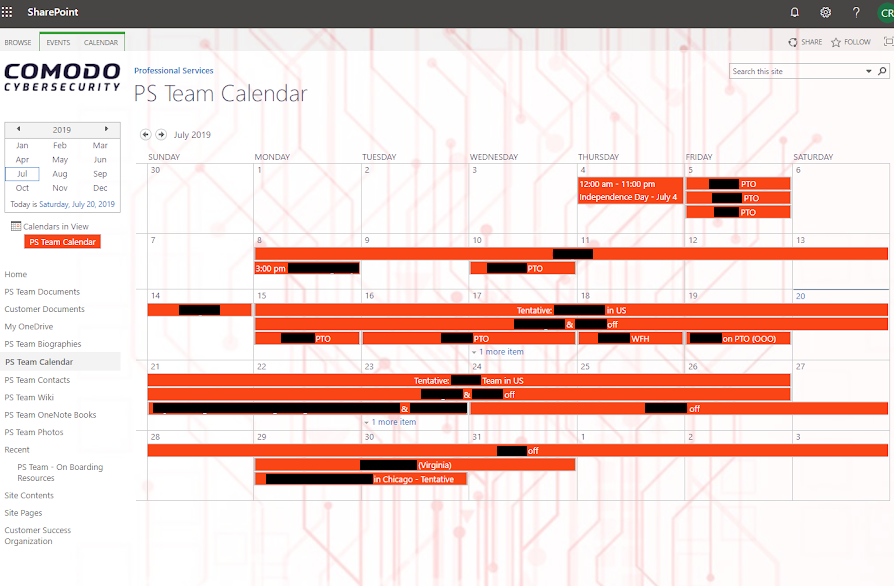A hacker gained access to internal files and documents owned by security company and SSL certificate issuer Comodo by using an email address and password mistakenly exposed on the internet.
The credentials were found in a public GitHub repository owned by a Comodo software developer. With the email address and password in hand, the hacker was able to log into the company’s Microsoft-hosted cloud services. The account was not protected with two-factor authentication.
Jelle Ursem, a Netherlands-based security researcher who found the credentials, contacted Comodo vice president Rajaswi Das by WhatsApp to secure the account. The password was revoked the following day.
Ursem told TechCrunch that the account allowed him to access internal Comodo files and documents, including sales documents and spreadsheets in the company’s OneDrive — and the company’s organization graph on SharePoint, allowing him to see the team’s biographies, contact information including phone numbers and email addresses, photos, customer documents, calendar, and more.

A screenshot of a staff calendar on Comodo’s internal site. (Image: supplied)
He also shared several screenshots of folders containing agreements and contracts with several customers — with the names of customers in each filename, such as hospitals and U.S. state governments. Other documents appeared to be Comodo vulnerability reports. Ursem’s cursory review of the data did not turn up any customer certificates private keys, however.
“Seeing as they’re a security company and give out SSL certificates, you’d think that the security of their own environment would come first above all else,” said Ursem.
But according to Ursem, he wasn’t the first person to find the exposed email address and password.
“This account has already been hacked by somebody else, who has been sending out spam,” he told TechCrunch. He shared a screenshot of a spam email sent out, purporting to offer tax refunds from the French finance ministry.
We reached out to Comodo for comment prior to publication. A spokesperson said the account was an “automated account used for marketing and transactional purposes,” adding: “The data accessed was not manipulated in any way and within hours of being notified by the researcher, the account was locked down.”
It’s the latest example of exposed corporate passwords found in public GitHub repositories, where developers store code online. All too often developers upload files inadvertently containing private credentials used for internal-only testing. Researchers like Ursem regularly scan repositories for passwords and report them to the companies, often in exchange for bug bounties.
Earlier this year Ursem found a similarly exposed set of internal Asus passwords on an employee’s GitHub public account. Uber was also breached in 2016 after hackers found internal credentials on GitHub.
from TechCrunch https://ift.tt/2YqTcl9
via IFTTT
Comments
Post a Comment